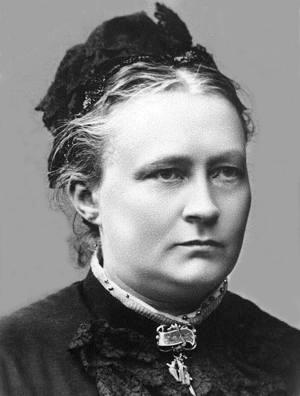Weber is a surname of German origin, derived from the noun meaning "weaver". In some cases, following migration to English-speaking countries, it has been anglicised to the English surname 'Webber' or even 'Weaver'.

Huber is a German-language surname. It derives from the German word Hube meaning hide, a unit of land a farmer might possess, granting them the status of a free tenant. It is in the top ten most common surnames in the German-speaking world, especially in Austria and Switzerland where it is the surname of approximately 0.3% of the population.

The masculine first name Gregory or Grégory derives from the Latin name "Gregorius", which came from the late Greek name "Γρηγόριος" (Grēgórios) meaning "watchful, alert".
Adler is a surname of German origin meaning eagle. and has a frequency in the United Kingdom of less than 0.004%, and of 0.008% in the United States. In Christian iconography, the eagle is the symbol of John the Evangelist, and as such a stylized eagle was commonly used as a house sign/totem in German speaking areas. From the tenement the term easily moved to its inhabitants, particularly to those having only one name. This phenomenon can be easily seen in German and Austrian censuses from the 16th and 17th centuries.

Eva is a female given name, the Latinate counterpart of English Eve, which is derived from the Hebrew חַוָּה (Chava/Hava), meaning "life" or "living one", the name of the first woman according to the Hebrew Bible. It can also mean full of life or mother of life. It is the standard biblical form of Eve in many European languages. Evita is a diminutive form, in Spanish.
Kira is a mostly feminine name of multiple origins and meanings.
Levine / Levin is a common Ashkenazi Jewish surname derived from the Hebrew name Levi. Levinsky is a variation with the same meaning.

Agnes is a female given name derived from the Greek Ἁγνή Hagnḗ, meaning 'pure' or 'holy'. The name passed to Italian as Agnese, to French as Agnès, to Portuguese as Inês, and to Spanish as Inés. It is also written as Agness. The name is descended from the Proto-Indo-European *h₁yaǵ-, meaning 'to sacrifice; to worship,' from which is also the Vedic term yajña. It is mostly used in Greece and countries that speak Germanic languages.

Renée is a French/Latin feminine given name and surname.
Alberto is the Romance version of the Latinized form (Albertus) of Germanic Albert. It is used in Italian, Portuguese and Spanish. The diminutive forms are Albertito in Spain or Albertico in some parts of Latin America, Albertino in Italian as well as Tuco as a hypocorism. It derives from the name Adalberto which in turn derives from Athala and Berth.

Sarah is a common feminine given name of Hebrew origin. It derives its popularity from the biblical matriarch Sarah, the wife of Abraham and a major figure in the Abrahamic religions. It is a consistently popular given name across Europe, North America, and the Middle East — being commonly used as a female first name by Jews, Muslims, and Christians alike, and remaining popular also among non-religious members of cultures influenced by these religions.
Marisa is a feminine given name. Like the given name Marissa, the name is derived from the Latin maris, meaning "of the sea". The name is also a Spanish, Portuguese or Italian contracted familiar nickname for Maria Isabel or Maria Luisa.
Bella is a feminine given name. It is a diminutive form of names ending in -bella. Bella is related to the Italian, Spanish, Greek, Portuguese and Latin words for beautiful, and to the name Belle, meaning beautiful in French.
Christine is feminine given name of Greek origin. It is a name in regular usage in French, English, German, Scandinavian, Dutch, Irish, and Scottish cultures, and it is often associated with the meaning "Follower of Christ." Variants include: Christina, Kristin, Kristina, Kristine, Kristen, Kirsten, Khrystyna (Ukraine), Krystyna (Poland), Kristiina, and Cristina.

Amalia is a female given name, derived from the Hebrew word amal, meaning "work, activity", specifically the woman's name Amalberga. Its popularity is attributed to the Belgian Saint Amalberga of Maubeuge. The origins of the name Amalia have often been associated with those of Emilia and Emily, both of which in fact originate from the Latin nomen Aemilia, or with Amalthea, which originated from the Greek name "tender goddess". In Greece, the name is celebrated on 10 July in honour of Saint Amalia.
Roth is an English, German, or Jewish origin surname. There are seven theories on its origin:
- The spilling of blood from the warrior class of ancient Germanic soldiers;
- Ethnic name for an Anglo-Saxon, derived from rot, referencing red-haired people;
- Topographical name, derived from rod, meaning a dweller in such a location;
- Derivative from hroth ;
- Local name for 18th-century Ashkenazi refugees to Germany;
- Derivative from roe in the ancient Danish language to signify (of) a king;
- Of the red colour of clay, as in pottery (German).
Pauline is a female given name. It was originally the French form of Paulina, a female version of Paulinus, a variant of Paulus meaning the little, hence the younger.

Martha is a feminine given name. Patti, Patsy, and Patty were in use in Colonial America as English rhyming diminutives of the diminutive Mattie. Molly has been used as a diminutive of Martha since the 1700s.
Ellen is a female given name, a diminutive of Elizabeth, Eleanor, Elena, and Helen. Ellen was the 609th most popular name in the U.S. and the 17th in Sweden in 2004.

Minna is a feminine name of Germanic origin, meaning courtly love, and is also a diminutive of Wilhelmina. It is now particularly known in Finland and Sweden.








